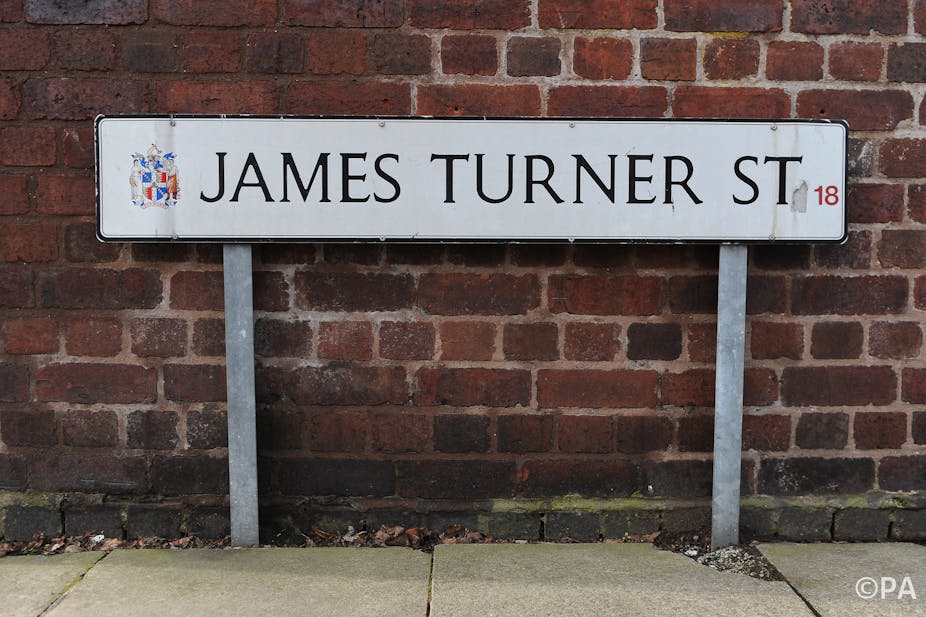ITV has recently announced that it will not commission a second series of the controversial comedy series Dapper Laughs. The decision comes after a petition to have the programme removed from the air gathered almost 60,000 signatures in a day.
Over at Channel 4, meanwhile, a second series of Benefits Street has been commissioned, despite complaints that it presents residents in a bad light. Ralph Lee, an executive at the channel has argued that these criticisms are “a form of censorship” and a threat to free speech.
Guardian columnist Catherine Bennett took a similar view when criticising protests about the Exhibit B exhibition at London’s Barbican. Protesters accused the exhibition of being racially offensive. Bennett accused them, in turn, of being “self-appointed censors”.
Are these protests a form of censorship though? It might be argued that we need criticism of this kind to help us decide what is morally acceptable in a free society.
In fact, Lee and Bennett’s reactions expose a common attitude to freedom of speech – an one that is especially common among artists, intellectuals and those working in the media. Freedom of speech should be absolute, to the point where even the exercising of free speech by protestors becomes a threat to free speech.
This view of free speech can be traced back in its current form to the controversy over Salman Rushdie’s book The Satanic Verses. It was neatly expressed in the wake of the scandal by free speech campaign group Article 19, which said: “Any denunciation of acts of the imagination … strikes at the very heart of freedom – the freedom to imagine.”
On the face of it, this sounds reasonable enough. It’s easy to agree that any threat to the life and personal liberty of those who engage in “acts of imagination” –- presumably, everyone –- is unacceptable. But any “denunciation” of the imagination? This might imply that “acts of imagination” should be immune from criticism and moral censure.
And it is highly debatable whether the “freedom to imagine” is, in fact, at the very heart of freedom. Even John Stuart Mill, whose On Liberty is regarded by contemporary libertarians as something of a bible, was equivocal about this. He does suggest that freedom of expression is fundamental to liberty but he also argues that all freedoms are consequent upon a more fundamental liberty: the right to security of life and personhood.
And, as philosopher Abigail Levin has pointed out, liberty and equality are not equivalent and mutually complementary values. There is often a tension, sometimes outright conflict, between them. In fact, if you read another of Mill’s works, The Subjection of Women, you will find he appears implicitly to downgrade freedom of expression in order to further the cause of equality.
Contemporary champions of free speech absolutism often overlook this. As the Oxford philosopher Brian Klug has observed, these champions argue that if free speech is to mean anything at all, it must include the right to be offensive –- but they also seem surprised when people are actually offended. And if such people then go on to do something about it, such as protest, then this is deemed to be unacceptable even if what they are doing is, in fact, exercising their right to free speech.
If people like Lee and Bennett can judge that the protesters are exercising their right to free speech unacceptably, why should writers, artists, intellectuals, film-makers and journalists be exempt from the same scrutiny and judgement?
In relation to Benefits Street, Austin Mitchell MP was surely right to draw attention to the ethical responsibilities incumbent on creative artists when he asked Channel 4 to “consider the ethics of the trend [it] has embarked on, demonising the poor and making poverty entertainment”. How we exercise our rights is clearly as important as having them in the first place. But this would require the kind of self-examination and willingness to admit error or compromise that the likes of Lee and Bennett seem unwilling to endorse. For them, that’s tantamount to “backing down” and “self-censorship”.
This may be because the idea of using one’s right to free speech responsibly sits rather awkwardly with some free speech campaigners. In his book From Fatwa to Jihad, Kenan Malik accepts the famous argument that free speech does not include the right to shout “Fire!” in a crowded theatre.
But he also argues that any responsibility for the consequences of free speech lie solely with those that respond to speech rather than those who produce it. That being the case, why would it be wrong to shout “Fire!” in the theatre? The responsibility for any stampede would surely lie solely with the stampeders. They would be in the wrong, not the shouter.
By advocating blind adherence to the principle of free speech instead of accepting the ethical responsibilities attendant upon free speech, people like Lee, Bennett and Malik undermine the moral agency on which freedom rests. By dismissing other people’s right to protest, they are effectively saying that everything must be acceptable to everyone, and that anyone – especially “artists” – should be able to say whatever they like, whatever the consequences.
Not only do we have to put up with it because that is the price to be paid for free speech, we also have to shut up about it too if we don’t like it. Now that does sound like censorship to me.

